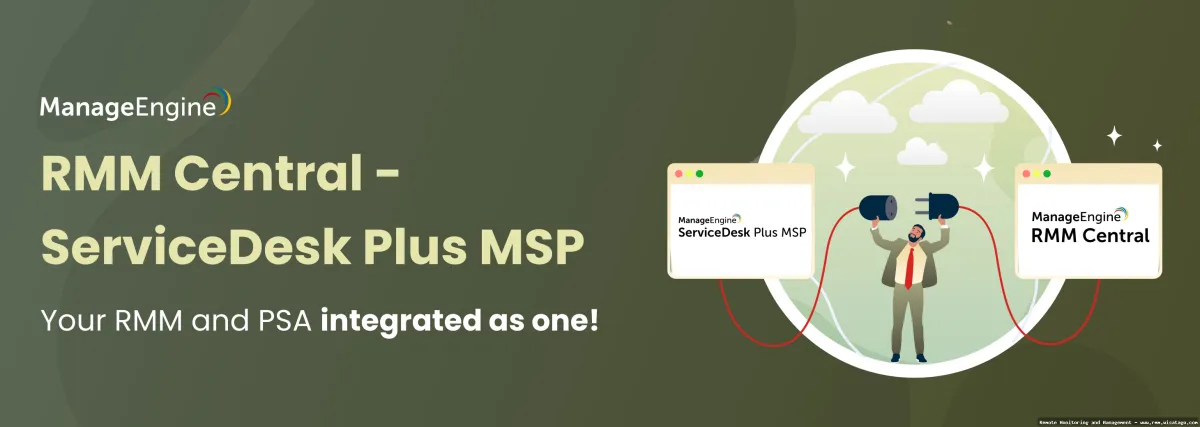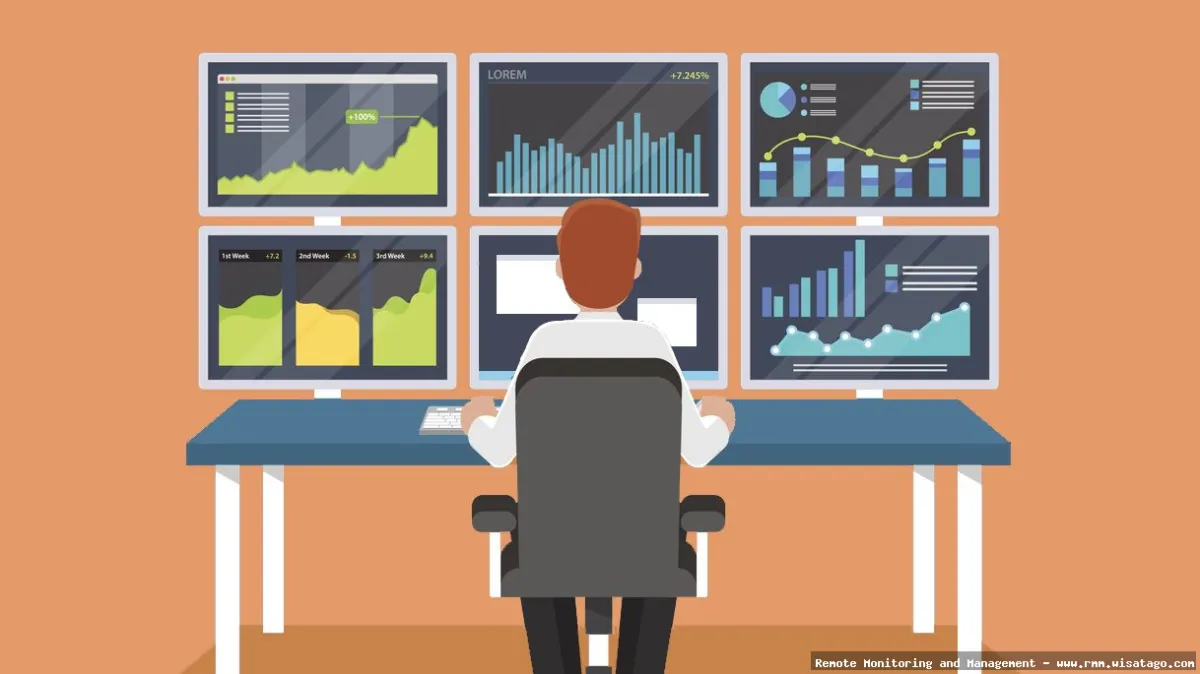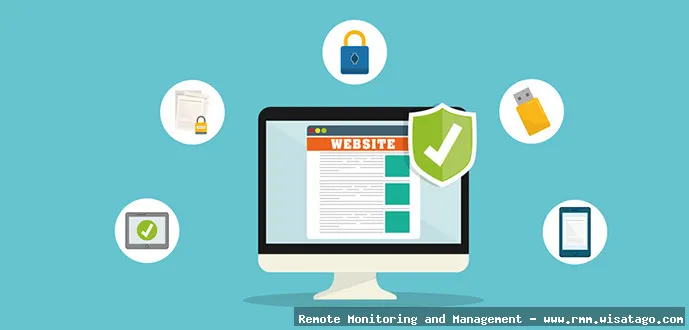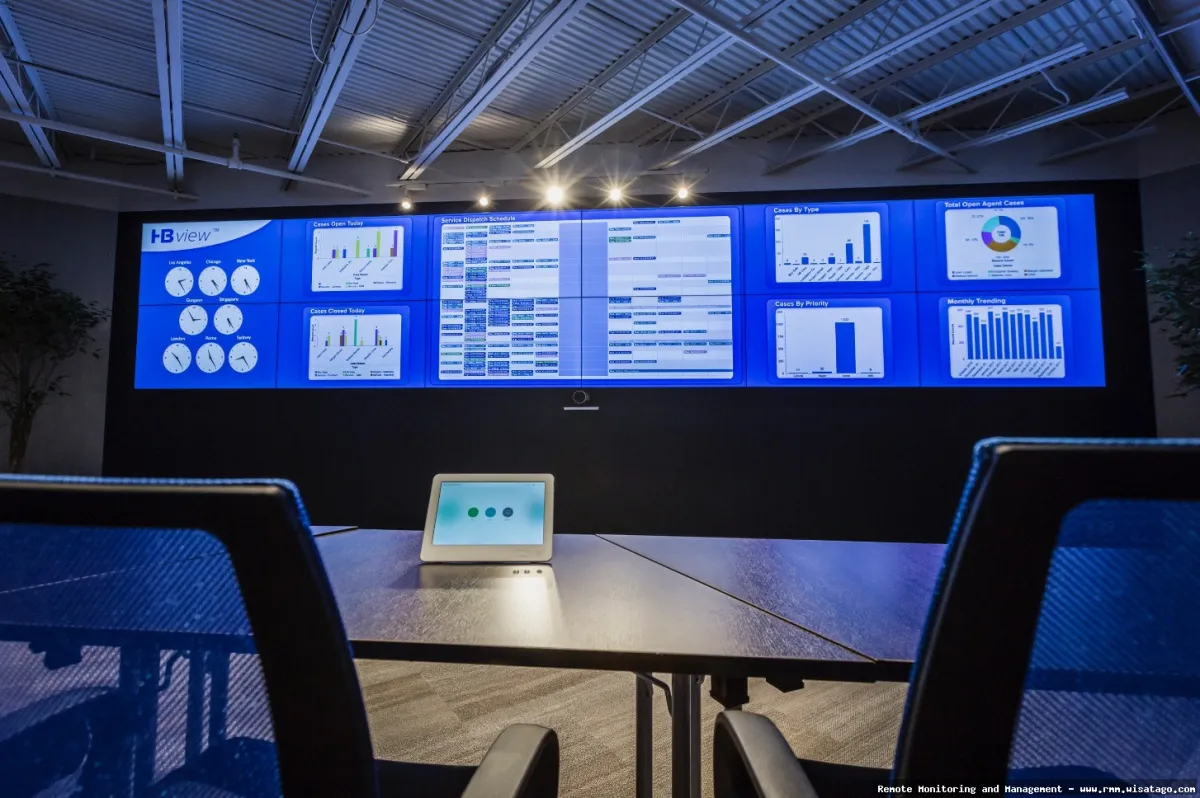In today’s fast-paced IT landscape, managing multiple clients efficiently and securely is paramount for Managed Service Providers (MSPs) and IT service companies. The old break-fix model is rapidly becoming obsolete, replaced by proactive monitoring and maintenance. That’s where Remote Monitoring and Management (RMM) tools come into play. But acquiring and managing individual RMM licenses for each client can quickly become a logistical and financial nightmare. Enter wholesale RMM licensing – a game-changer for streamlined client management and cost optimization.
Wholesale RMM licensing allows MSPs to purchase RMM software licenses in bulk at a discounted rate, enabling them to offer comprehensive managed services to a larger client base without the overhead of individually licensing each endpoint. This approach simplifies deployment, reduces administrative burden, and provides a more predictable cost structure, ultimately boosting profitability and scalability. It’s about moving from a reactive to a proactive stance, preventing issues before they impact your clients’ businesses.

This article will delve into the world of wholesale RMM licensing, exploring its benefits, features, considerations, and how it can transform your IT service delivery. We’ll cover everything from understanding the different licensing models to selecting the right RMM platform and implementing best practices for multi-client management. Whether you’re a seasoned MSP or just starting out, this guide will provide the insights you need to leverage wholesale RMM licensing for maximum impact.
Understanding Remote Monitoring and Management (RMM)
Before diving into the specifics of wholesale licensing, it’s crucial to understand what RMM is and why it’s essential for modern IT management. RMM software provides a centralized platform for monitoring, managing, and securing IT infrastructure remotely. It allows IT professionals to proactively identify and resolve issues, automate routine tasks, and ensure the optimal performance of client systems.
Key Features of RMM Software
RMM platforms offer a wide range of features designed to streamline IT management:
- Remote Monitoring: Real-time monitoring of servers, workstations, network devices, and applications. Alerts are triggered based on predefined thresholds, notifying IT staff of potential issues.
- Patch Management: Automated patching of operating systems and third-party applications to maintain security and stability.
- Remote Access: Secure remote access to client devices for troubleshooting, maintenance, and support.
- Automation: Scripting and automation capabilities to automate routine tasks such as software deployment, configuration changes, and system maintenance.
- Reporting: Comprehensive reporting on system health, performance, security, and compliance.
- Antivirus and Anti-malware Management: Integration with security solutions to manage and monitor antivirus and anti-malware protection.
- Backup and Disaster Recovery: Integration with backup solutions for data protection and disaster recovery.
- Asset Management: Tracking of hardware and software assets for inventory management and compliance.
Benefits of Using RMM
Implementing an RMM solution offers numerous benefits for both MSPs and their clients:
- Proactive Issue Resolution: Identify and resolve issues before they impact users or business operations.
- Improved Uptime: Minimize downtime through proactive monitoring and maintenance.
- Enhanced Security: Patch management, vulnerability scanning, and security monitoring to protect against cyber threats.
- Increased Efficiency: Automate routine tasks and streamline IT management processes.
- Reduced Costs: Lower support costs, minimize downtime, and optimize resource utilization.
- Scalability: Easily manage a growing number of clients without increasing headcount.
- Improved Client Satisfaction: Provide reliable and responsive IT support, leading to higher client satisfaction.
What is Wholesale RMM Licensing?
Wholesale RMM licensing, as the name suggests, is a licensing model where MSPs purchase RMM licenses in bulk from the software vendor at a discounted rate. This allows them to deploy the RMM agent across multiple client environments and manage their IT infrastructure centrally. Instead of purchasing individual licenses for each device or user at each client, the MSP pays a bundled price for a larger quantity of licenses.
How Wholesale RMM Licensing Works
The process typically involves the following steps:
- Negotiate a Contract: The MSP negotiates a contract with the RMM vendor for a specific number of licenses and a discounted price.
- Purchase Licenses: The MSP purchases the agreed-upon number of licenses.
- Deploy RMM Agent: The MSP deploys the RMM agent to all managed devices across their client base.
- Centralized Management: The MSP uses the RMM platform to monitor, manage, and support all client devices from a central console.
- Billing and Reporting: The MSP bills clients for the RMM services based on their own pricing model and provides reports on system health and performance.
Benefits of Wholesale RMM Licensing
Wholesale RMM licensing offers several key advantages over individual licensing:
- Cost Savings: Significant discounts on bulk license purchases.
- Simplified Management: Centralized management of all licenses and deployments.
- Scalability: Easily scale your RMM deployment as your client base grows.
- Predictable Costs: More predictable monthly or annual licensing costs.
- Improved Profitability: Higher profit margins due to lower licensing costs.
Key Considerations When Choosing a Wholesale RMM Solution
Selecting the right wholesale RMM solution is crucial for maximizing the benefits of this licensing model. Here are some key factors to consider:

Features and Functionality
Ensure the RMM platform offers the features and functionality you need to meet the specific needs of your clients. Consider the following:
- Comprehensive Monitoring: Does the platform monitor all critical systems and applications?
- Robust Automation: Does it offer powerful automation capabilities to streamline routine tasks?
- Advanced Security: Does it provide advanced security features such as vulnerability scanning and threat detection?
- Integration with Other Tools: Does it integrate with your existing IT management tools such as PSA (Professional Services Automation) and ticketing systems?
Scalability and Performance
The RMM platform should be able to scale to accommodate your growing client base without impacting performance. Consider the following:
- Number of Endpoints Supported: What is the maximum number of endpoints the platform can support?
- Response Time: How quickly does the platform respond to alerts and events?
- Resource Utilization: How much system resources does the RMM agent consume?
Vendor Support and Training
Choose a vendor that provides excellent support and training to help you get the most out of the RMM platform. Consider the following:
- Availability of Support: Is support available 24/7?
- Response Time: How quickly does the vendor respond to support requests?
- Training Resources: Does the vendor offer comprehensive training materials and programs?
- Community Forum: Is there an active community forum where you can connect with other users and share knowledge?
Pricing and Licensing Models
Understand the different pricing and licensing models offered by the vendor and choose the one that best fits your budget and business needs. Consider the following:. To maximize operational efficiency and boost revenue, exploring Profitable Rmm Solutions becomes crucial for modern MSPs
- Per-Device Pricing: Pay a fixed price for each device managed by the RMM platform.
- Per-User Pricing: Pay a fixed price for each user managed by the RMM platform.
- Bundled Pricing: Pay a fixed price for a bundle of features and services.
- Contract Terms: Understand the contract terms and conditions, including cancellation policies and renewal options.
Implementing Wholesale RMM Licensing: Best Practices
Implementing wholesale RMM licensing effectively requires careful planning and execution. Here are some best practices to follow:
Define Your Service Offerings
Clearly define the services you will offer to your clients and how they will be delivered using the RMM platform. This will help you determine the appropriate pricing and service level agreements (SLAs). For more information, you can refer to RMM as an additional resource.
Standardize Your Configuration
Standardize your RMM configuration across all clients to ensure consistency and simplify management. This includes setting up standard monitoring policies, alert thresholds, and automation scripts.
Automate Deployment and Configuration
Automate the deployment and configuration of the RMM agent to minimize manual effort and ensure consistency. Use scripting and automation tools to streamline the process.

Monitor and Manage Performance
Continuously monitor and manage the performance of the RMM platform to ensure it is meeting your needs. Track key metrics such as response time, resource utilization, and alert volume.
Provide Regular Reporting
Provide regular reports to your clients on system health, performance, and security. This will help them understand the value of your services and build trust.
Stay Up-to-Date
Stay up-to-date with the latest features and updates of the RMM platform. Attend training sessions and webinars to learn about new capabilities and best practices.
Challenges and Mitigation Strategies
While wholesale RMM licensing offers significant advantages, there are also some challenges to be aware of. Here are some common challenges and mitigation strategies:
Complexity of Multi-Client Management
Managing multiple clients with different needs and requirements can be complex. To mitigate this, standardize your RMM configuration as much as possible and use automation to streamline routine tasks.
Security Risks
A compromised RMM platform can pose a significant security risk to all managed clients. Implement strong security measures such as multi-factor authentication and regular security audits.
Vendor Lock-In
Switching RMM platforms can be a complex and time-consuming process. Carefully evaluate your options before committing to a vendor and ensure you have a clear exit strategy.
Integration Issues
Integrating the RMM platform with other IT management tools can be challenging. Ensure the platform offers robust integration capabilities and work closely with the vendor to resolve any issues.

Conclusion
Wholesale RMM licensing is a powerful tool for MSPs and IT service companies looking to streamline multi-client management, reduce costs, and improve profitability. By understanding the benefits, features, considerations, and best practices outlined in this guide, you can leverage wholesale RMM licensing to transform your IT service delivery and achieve greater success in today’s competitive market. Remember to carefully evaluate your options, choose the right RMM platform, and implement effective management strategies to maximize the value of your investment. The shift to proactive, efficient, and scalable IT management is no longer a luxury—it’s a necessity for thriving in the modern business landscape.
Conclusion
In conclusion, the adoption of wholesale RMM licensing presents a compelling advantage for MSPs and IT service providers managing multiple clients. By centralizing license procurement and management, businesses can achieve significant cost savings, streamline operational efficiency, and enhance their service delivery capabilities. The ability to offer customized solutions, easily scale resources, and maintain a competitive edge in the market makes wholesale RMM licensing a strategic imperative for long-term success.
Ultimately, choosing the right wholesale RMM licensing model can be a transformative decision for your business. We’ve explored the key benefits and considerations involved in making that choice. If you’re ready to explore how wholesale RMM licensing can empower your business and optimize your client management strategy, we encourage you to contact us today for a personalized consultation. Discover how our tailored solutions can help you unlock new levels of efficiency and profitability. Click here to learn more about our wholesale RMM options: https://www.example.com/wholesale-rmm
Frequently Asked Questions (FAQ) about Wholesale RMM Licensing for Multiple Client Management
What are the key benefits of using a wholesale RMM (Remote Monitoring and Management) licensing model for managed service providers (MSPs) managing multiple clients?
Wholesale RMM licensing offers several significant benefits for MSPs. Firstly, it often provides a cost-effective solution, allowing you to purchase licenses in bulk at a discounted rate compared to individual subscriptions. This translates to improved profit margins when serving multiple clients. Secondly, wholesale licensing simplifies license management. Instead of tracking individual licenses for each client, you manage a single pool, streamlining administration and reducing the risk of license compliance issues. Thirdly, it provides scalability and flexibility. As your business grows and you onboard new clients, you can easily allocate licenses from your wholesale pool without needing to negotiate new contracts with the RMM vendor for each client. This agility is crucial for rapid growth and adapting to changing client needs. Finally, some vendors offer enhanced support and account management to wholesale partners, providing a higher level of assistance than standard customers.
How does wholesale RMM licensing pricing typically work, and what are the common factors that influence the overall cost for MSPs managing numerous endpoints?
Wholesale RMM licensing pricing usually operates on a tiered or volume-based model. The more licenses you purchase, the lower the per-license cost becomes. Several factors influence the overall cost. The first is the number of endpoints you need to manage. This includes servers, workstations, and other devices. Secondly, the specific features and modules included in the RMM platform impact the price. For example, advanced security features, patch management, or remote access capabilities may increase the cost. Thirdly, the contract duration can play a role. Longer-term contracts often come with better pricing. Furthermore, some vendors may offer usage-based pricing for certain features, where you only pay for what you actively use. Finally, the level of support provided by the vendor can affect the overall cost, as premium support packages typically come with a higher price tag. Understanding these factors is crucial for MSPs to accurately budget for RMM licensing.
What key questions should MSPs ask potential RMM vendors when considering a wholesale licensing agreement to ensure it meets their specific needs for managing a diverse client base?
When evaluating wholesale RMM licensing, MSPs should ask several crucial questions. First, inquire about the minimum license commitment and the flexibility to adjust license counts as needed. Second, clarify the pricing structure, including any hidden fees or overage charges. Understanding the total cost of ownership is essential. Third, ask about the support and training resources available to wholesale partners. Ensure the vendor provides adequate assistance to your team. Fourth, inquire about the scalability of the platform and its ability to handle a growing number of clients and endpoints. The RMM should be able to accommodate future growth. Fifth, confirm the reporting and analytics capabilities of the platform, ensuring it provides the insights needed to effectively manage your clients’ IT environments. Finally, ask about the vendor’s security certifications and compliance measures, as data security is paramount. Addressing these points helps ensure the wholesale RMM solution aligns with the MSP’s specific requirements.